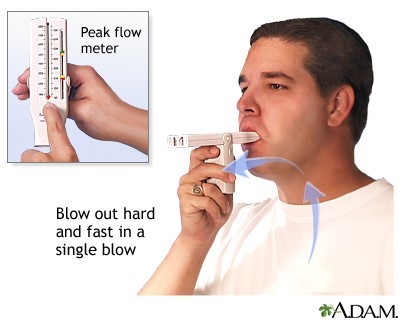A nurse is disinfecting the room of a client who has a Clostridium difficultiesinfection. Which of the following solutions should the nurse use?
Chlorhexidine.
Isopropyl alcohol.
Chlorine bleach.
Triclosan.
The Correct Answer is C
According to the CDC1, chlorine bleach is an effective disinfectant for killing C. difficile spores on environmental surfaces.
It should be used in a 1:10 dilution of household bleach and water, freshly mixed daily.
Chlorine bleach can also kill other pathogens that may be present in the room of a client with C. difficile infection.
Choice A is wrong because chlorhexidine is not effective against C. difficile spores.
Chlorhexidine is an antiseptic that can be used for hand hygiene and surgical asepsis, but it does not kill spores.
Choice B is wrong because isopropyl alcohol is also not effective against C. difficile spores.
Alcohol-based hand sanitizers are not sufficient for preventing the spread of C. difficile, and soap and water should be used instead.
Choice D is wrong because triclosan is a type of antibacterial agent that is commonly found in some consumer products, such as soap and toothpaste. However, triclosan has no activity against C. difficile spores.
Triclosan may also contribute to antibiotic resistance and has potential adverse effects on human health and the environment.
Nursing Test Bank
Naxlex Comprehensive Predictor Exams
Related Questions
Correct Answer is D
Explanation
The correct answer is choice D. The nurse should respect the client’s autonomy and offer assistance if needed.
The nurse should also assess the client’s pain level and provide adequate pain relief before helping the client get out of bed.
Choice A is wrong because it implies that the client is in pain and needs medication, which may not be true.
The nurse should ask the client about their pain level and offer medication if appropriate.
Choice B is wrong because it dismisses the client’s feelings and does not address the underlying issue of why the client does not want to be touched.
Choice C is wrong because it may make the client feel defensive or interrogated.
The nurse should use open-ended questions and active listening to explore the client’s concerns and fears.
According to web sources, postoperative care involves monitoring and managing the client’s vital signs, pain, wound healing, fluid and electrolyte balance, bowel and bladder function, mobility, and psychological status.
The nurse should also educate the client about self-care, wound care, activity restrictions, medication use, signs of complications, and follow-up appointments.
The nurse should also provide emotional support and reassurance to the client and their family.
Correct Answer is A
Explanation
This is because the nurse should first assess the client’s baseline knowledge and readiness to learn before providing any teaching.
The nurse should also tailor the teaching to the client’s individual needs and preferences.
Choice B is wrong because showing the client a video demonstration of peak flow meter use may not be the most effective way of teaching if the client has different learning styles or needs.
The nurse should also involve the client in the learning process and not just rely on passive methods.
Choice C is wrong because observing the client using the peak flow meter is an evaluation step that should be done after teaching and reinforcing the correct technique.
The nurse should not assume that the client knows how to use the peak flow meter without assessing their knowledge first.
Choice D is wrong because emphasizing the importance of the daily use of the peak flow meter is a motivational strategy that should be done after assessing the client’s knowledge and providing teaching.
The nurse should also explain the rationale and benefits of using the peak flow meter, not just tell the client to do it.
A peak flow meter is a small device that measures how fast a person can forcefully blow air out of their lungs in one fast breath.
It is one indicator of airways changes that may occur in people with asthma or COPD.
To get a peak flow meter, speak to a doctor.

Whether you are a student looking to ace your exams or a practicing nurse seeking to enhance your expertise , our nursing education contents will empower you with the confidence and competence to make a difference in the lives of patients and become a respected leader in the healthcare field.
Visit Naxlex, invest in your future and unlock endless possibilities with our unparalleled nursing education contents today
Report Wrong Answer on the Current Question
Do you disagree with the answer? If yes, what is your expected answer? Explain.
Kindly be descriptive with the issue you are facing.
